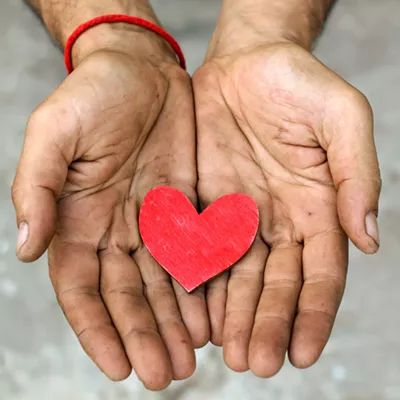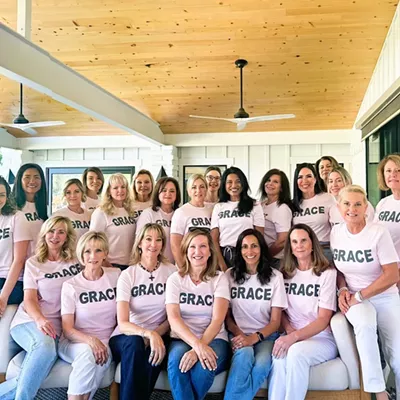At midday, Sulaimaniyah (pronounced Sue-lay-man-ee-ya) was bustling with paganistic Kurds enjoying the winter sun. Groups of young men in jeans cruised the main street while old men in their baggy Kurdish trousers sat in front of small shops and swapped stories, their faces screwed up in smiles as they chatted and downed tiny glasses of hot tea.
Salim Street, the Speedway of Suli, was packed as usual; the traffic jams up seemingly non-stop since the war, when Kurdistan was flooded with looted cars from Baghdad.
Mam Qadir was sucking in sobs and I blinked back tears, knowing that if I broke down, he would lose it, and we would never make it out of the city that had become my much-loved home during a nearly two-year stint in Iraq.
And I had to get out of Suli to begin the long journey back to Tucson, a home I had left in 1992 to seek the Middle East.
That the two cities had become intertwined in a Sister Cities project even as I packed my bags in one city to go to the other was an odd quirk of fate that I will never understand, but will accept as cosmically ordained.
An island of liberalism in a sea of conservative, religious parochialism (sound familiar?), Suli is home to a people known for their open minds, laid-back tolerance, quick wits and love of a good time.
In the rival city of Erbil, the capital of the Kurdistan region in Iraq, the jokes about Sulaimaniyans always have them drunk and exhibiting loose morals. When Sulaimaniyans recite their many jokes about Erbilis, they are portrayed as dull-witted, conformist and unworldly.
While the rest of Iraq's Muslims go to the mosque to pray on Fridays, Sulaimaniyans head out to the countryside for "picnic day." From early spring, when wild, pink flowering oleanders stuff arroyos and blood-red poppies blanket hillsides, until the last possible day before winter sets in, Kurdish families pack up plastic lawn chairs, blankets, boom boxes, barbecue grills and enough food and booze for a small army, to head for the high mountain valleys to dance, eat and hang out in the sun or shade (depending on the temperature) until dark.
While many of Iraq's Kurds embrace picnic day, for Sulaimaniyans, it is hardcore ritual that leaves the pot-holed roads out of the city bumper to bumper with vehicles full of clapping, singing partiers. The city itself is basically empty from sun-up until sundown. On would think an empty city a thief's haven, but few of Sulaimaniyah's 800,000 residents would so denigrate themselves as to steal from another.
The proud, nearly uppity, Sulaimaniyans are a confident lot. They easily embrace anything foreign with an air of feigned disinterest, as if the English language, satellite dishes and Internet cafés were things they thought up themselves but are happy to share with the rest of the world.
An arid city nestled amid low mountains, Suli is one of the few cities in the Middle East conceived of and designed as an urban center. Most cities developed over centuries from expanding agricultural communities and the "village mentality" stubbornly persists to present day.
Suli, on the other hand, was planned by a Kurdish Emir several hundred years ago as an arts and cultural center. The city has long been home to Kurdistan's finest musicians, painters, poets, comedians, actors and intellectuals of all stripes. Situated a couple hours from Iran, Suli artists have benefited from centuries of cultural intercourse with urbane Persian writers and artists.
Also unfortunately situated in Iraq, Sulaimaniyah suffered mightily from the heavy hand of Saddam Hussein's Ba'th regime. Known as an intensely defiant city, the university in Suli was bombed and finally relocated by the government; young people were jailed or forced to flee; and nearby villages were hit again and again with various chemical weapons to dislodge support for the Kurdish guerilla fighters, the Peshmerga ("those who face death").
Iraq's nearly 5 million Kurds are Sunni Muslims like the Ba'thist thugs who ruled from the 1960s until the 2003 war, but they are not Arabs. They are ethnically distinct--an Indo-European people who speak not Arabic but a language similar to Iran's Persian and Afghanistan's Dari.
The Kurds are the indigenous people of the huge swath of mountains that arc through what is now northwestern Iran, across northern Iraq and into southeastern Turkey, with spillover into several nearby countries. Their land was carved up at the behest of the British victors after World War II (read: oil). Numbering some 25 million today, the Kurds are the largest ethnic group in the world without a country of their own.
From their mountain heights, the Kurds have fought off a string of would-be conquerors from Alexander the Great to Saddam Hussein, earning them a centuries-old reputation as fierce guerilla fighters. The oft-repeated Kurdish expression, "no friend but the mountains," held real meaning up until the no-fly zone was established after the 1991 Gulf war, and the Kurdish north found a friend in U.S. and British planes which kept Saddam at bay.
Also in 1991, the Iraqi central government withdrew all services and presence from three Kurdish providences. The Kurds lost no time organizing regional elections--the first free elections in Iraq--and have been self-ruling ever since.
The mostly free-market Kurdish economy--already years ahead of the rest of Iraq--has exploded in the years since the 2003 war. Iranian and Turkish businessmen have been quick to invest, as have Kurdish exiles returning from Europe and the United States. Increasingly, business people from the Arab parts of Iraq are moving their companies north to the safety of Kurdistan.
In Sulaimaniyah, scores of new factories have been established, and office and commercial buildings are popping up on every corner. New home construction is rampant and unemployment nearly zero, with labor imported from Iran and the Arab areas of Iraq.
The economic boom is fueled in part by the safe and secure environment. While the rest of Iraq continues to roil with violence, Kurdistan has well-established police departments, efficient intelligence services and a loyal, dedicated and disciplined military, who all keep the peace. More importantly, the people support the Kurdish regional and local governments--however much they gripe and complain--and are set solidly against the Ba'thist and Islamic insurgents terrorizing the rest of Iraq.
U.S. troops are not needed here--the only ones visible today in Kurdistan are in Sulaimaniyah's many liquor stores or on R&R at mountain lake resorts. They would no doubt agree with the Arabs from the rest of Iraq who say with a smile when they visit Sulaimaniyah: "You can breathe here."







